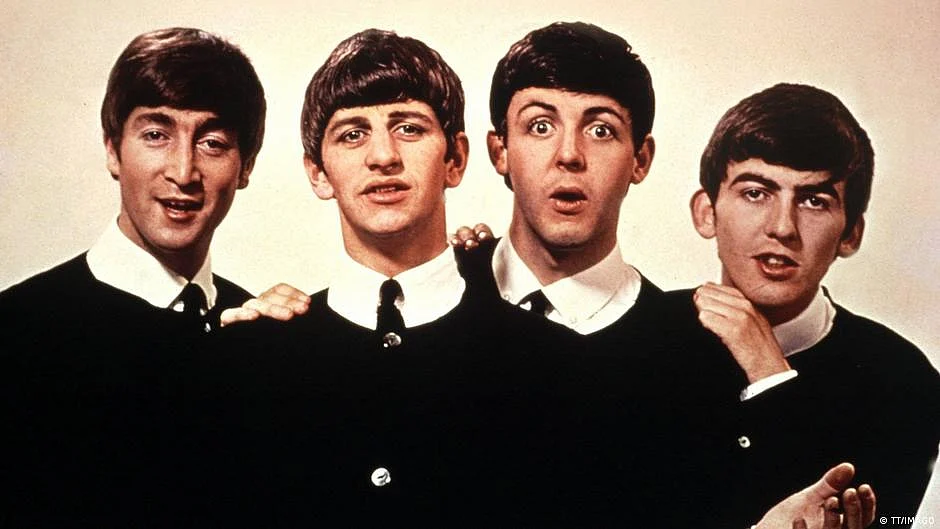'New' Beatles track created with the help of AI: McCartney
Former Beatle Paul McCartney announced that an AI-aided "final Beatles record" featuring John Lennon will come out this year. He is also publishing a photo book, titled "Eyes of the Storm."

"It was a demo that John [Lennon] had, and that we worked on, and we just finished it up," former Beatle Paul McCartney, who turns 81 next week, told the BBC, referring to an upcoming record he said would be released this year.
McCartney did not name the unreleased song, but according to the BBC it is likely to be a 1978 Lennon composition called "Now And Then."
The Beatles — John Lennon, Paul McCartney, George Harrison and Ringo Starr — split in 1970, with each going on to have solo careers. They never reunited or produced other records as a group afterwards. Lennon was shot dead in New York in 1980 at the age of 40, while Harrison died of lung cancer in 2001, aged 58. Ringo Starr and Paul McCartney are still active as solo artists.
Track recorded a year before Lennon's death
Lennon had recorded different tracks for McCartney a year before his death. The demos were on a cassette that was given to him by Lennon's widow, Yoko Ono, in 1994.
Two of the songs, "Free As A Bird" and "Real Love," were cleaned up by Beatles producer Jeff Lynne, and released in 1995 and 1996. An attempt was also made to do the same with "Now And Then" but the project was abandoned because of background noise on the demo.
McCartney, who had previously mentioned that he wanted to finish the song, said AI had given him a new chance to do so. He discovered the potential of the technology by working with filmmaker Peter Jackson on the 2021 documentary series, "The Beatles: Get Back," in which AI was used to separate Lennon's voice and a piano. "They tell the machine, 'That's the voice. This is a guitar. Lose the guitar,'" McCartney explained.
"So when we came to make what will be the last Beatles' record, it was a demo that John had (and) we were able to take John's voice and get it pure through this AI. Then we can mix the record, as you would normally do. So it gives you some sort of leeway."
AI potentially harmful to musicians
McCartney has already experimented with AI before. Last year he performed a two-hour set at the Glastonbury festival in England, playing Beatles' classics to a 100,000-strong crowd. The set included a virtual duet with Lennon of the song "I've Got a Feeling," from the Beatles' last album, "Let It Be."
Last month, the British singer Sting warned that "defending our human capital against AI" would be a major battle for musicians in the coming years.
And, indeed, the use of AI in music is the subject of debate in the industry, with some denouncing copyright abuses and others praising its prowess.
The music streaming app Deezer recently announced it will be launching a tool to detect and tag songs with AI-generated vocal clones in a bid to protect the revenues of the real artists. Artificial Intelligence tools have recently allowed people to recreate the sound of famous artist vocals, from The Beatles to Oasis.
McCartney, however, embraces the use of new technologies. It was "kind of scary but exciting because it's the future," he said. "We'll just have to see where that leads."
A new photo book and exhibition for Paul McCartney
After the Beatles, the singer-songwriter went on to have hits with his band Wings, but also dabbled in painting and photography as well as animal rights campaigning in the past decades.
An exhibition — "Paul McCartney Photographs 1963-64: Eyes of the Storm" — opens on June 28 and is part of the reopening of the National Portrait Gallery in London, after a three-year refurbishment.
It features more than 250 unseen images that McCartney took on his Pentax camera between November 1963 and February 1964 as Beatlemania emerged.
The companion book to the exhibition has been published on June 13.
The photos show McCartney's personal perspective of the frenzy of the Beatlemania, when the band would constantly be surrounded by high-pitched screaming fans. "Millions of eyes were suddenly upon us, creating a picture I will never forget for the rest of my life," wrote McCartney in the foreword of the book, adding that he experienced it all from the "eyes of the storm" — thus the title.
Follow us on: Facebook, Twitter, Google News, Instagram
Join our official telegram channel (@nationalherald) and stay updated with the latest headlines
